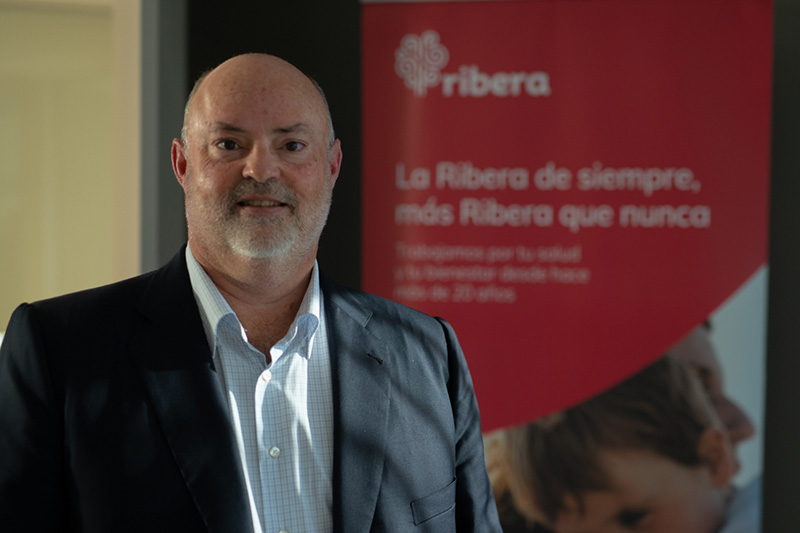Let me share with you all my article published in the spanish digital newspaper El Español on 11th November 2021 about Sustainable Development Goals
Leaving the world in a better way than what we found it, thinking about the future with strong foundations in terms of well-being and designing tomorrow with sustainability, efficiency and solidarity as criteria. This should be the objective of citizens, companies, organizations and institutions. And in order to do that, the roadmap set out by the 2030 Agenda is key as well as committing, without hesitation, to the Sustainable Development Goals (SDG) that, with the tragedy of Covid, are becoming even more important. Each one in their area of activity, on a small, medium or large scale. The important thing is to unite so that the foundations of this welfare society, which we are fortunate to experience as citizens in the first world, are extended to every corner of the globe and are sustainable over time.
For the first time, we have the opportunity to commit to some good objectives for both the planet and for humanity, with inclusive, impartial and depoliticized language, which unites and does not discriminate, and which attracts due to the strength of its message. In my opinion, it is important that it goes beyond political ideals and personal interests.
Ribera has been a pioneer for quite some time in the development of a responsible health model, with the aim of improving the well-being of the population, adding value by combining innovation and humanization, whilst, at the same time, contributing to the sustainability of the healthcare systems. For that reason, when the 2030 Agenda appeared, its integration into our day-to-day operations was immediate and natural. This is because our vocation is to transform the way of managing health, and although we are in line with the SDGs in general, our focus in on number 3 which refers to health and well-being.
Technology and human resources are essential for this responsible health model that we apply and that we are working hard to expand, beyond the nine hospitals and 60 primary care centers that we manage in five Spanish regions. Both are key in that they allow us to provide all patients with access to personalized, preventative, predictive and participatory healthcare. We make sure that they feel they are at the center, actively participating in their care, and provide them with the technology and the support that they need, as well as facilities and equipment adapted to people with functional diversity. Equality, universality, fairness and responsibility. All of them applied to health.
Furthermore, thanks to our commitment to research and co-innovation, we develop tools, applications and predictive models every day, such as that which, as of more than a year ago, allows us to predict which Covid patients may end up in the ICU, the telemonitoring of chronic illnesses, telerehabilitation or a virtual carer which, thanks to voice technology and artificial intelligence, “understands” patients, sends their vital signs to a healthcare professional almost immediately and is capable of handling thousands of patients in a few hours.
We must always keep moving forward and commit to initiatives that seek to make what still seems a utopia in a world that is becoming more and more skeptical, a reality, little by little. And I genuinely think that Ribera forms part of that group of brave people that work and reinvent themselves everyday to create a better world, in our case, even greater, faster, more humanized and socially responsible healthcare. Therefore, for example, we recently joined the One Health strategy, which promotes a global vision of health all over the world. Covid and the global pandemic that it has caused should make governments and health organizations aware of the importance of approaching the health and well-being of the population from a holistic point of view, since the health, economic, social and cultural constraints greatly influence the organization and planning of healthcare resources in both prevention and caring for the population.
No government should make decisions that affect the health and well-being of the population based on, for example, a political agenda built on confrontation, without valuing results and objective data. Yet, unfortunately, some political leaders are following a prehistoric agenda, and are still committed to 50 year old management models, serving a society that, quite simply, does not exist anymore.
And how can we guarantee a healthy life and promote well-being and health for the citizens of today at the Ribera group? With a strong and firm commitment to prevention and education for the health of the population, for all ages and stages of life, from the youngest, to pregnant women and the elderly, making medicine personalized, responding to the challenges of this new society. Covid has resulted in everything being a challenge in this area, as it has forced us to contemplate other kinds of actions, different from those organized before the pandemic started, where face-to-face workshops predominated. In March, 2020, everything changed, first due to the lockdown and later because of the social distancing needed which is still recommended today. That led us, during the first lockdown, and thanks to the involvement and initiative of our professionals, to launch our Cuídate en casa (look after yourself at home) program, which included videos with advice about health, exercise, healthy eating and online mindfulness, relaxation and rehabilitation workshops. It was so well received that it led us to record a second edition, with new videos for every type of patient, which can be seen on our YouTube channel.
With each of our actions today, we are defining how we want the world to be tomorrow. Are you on board?

